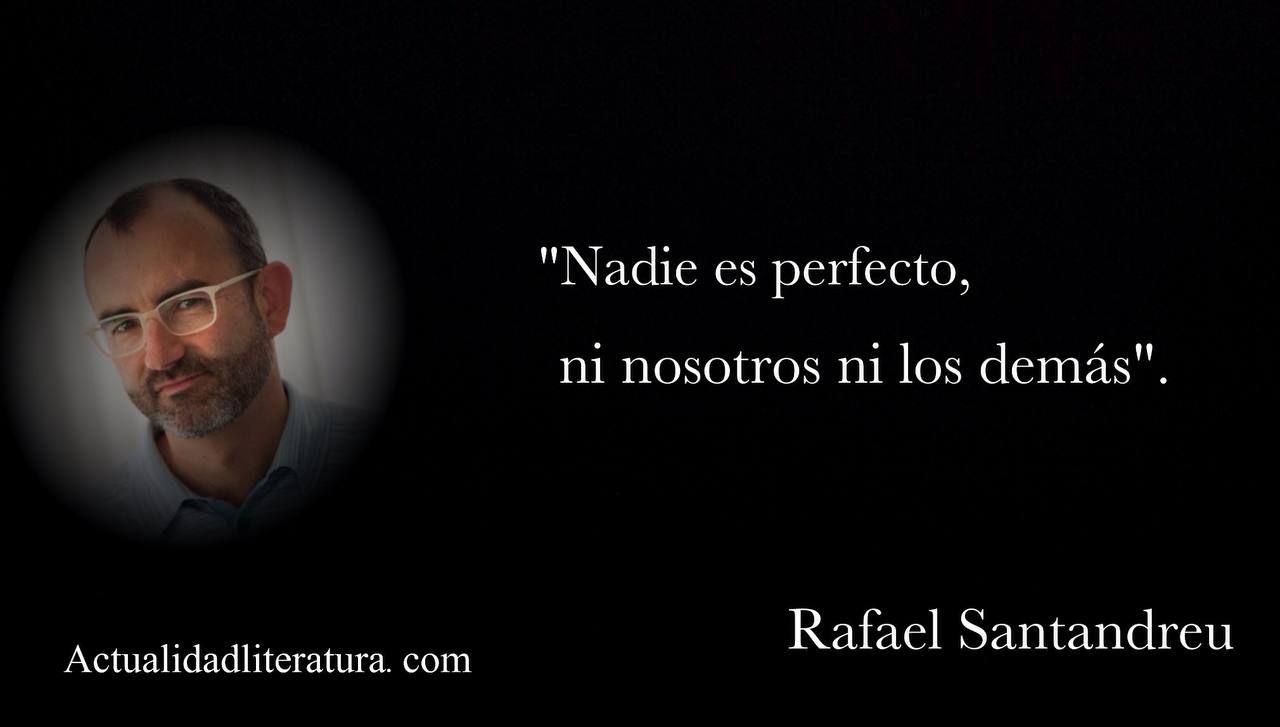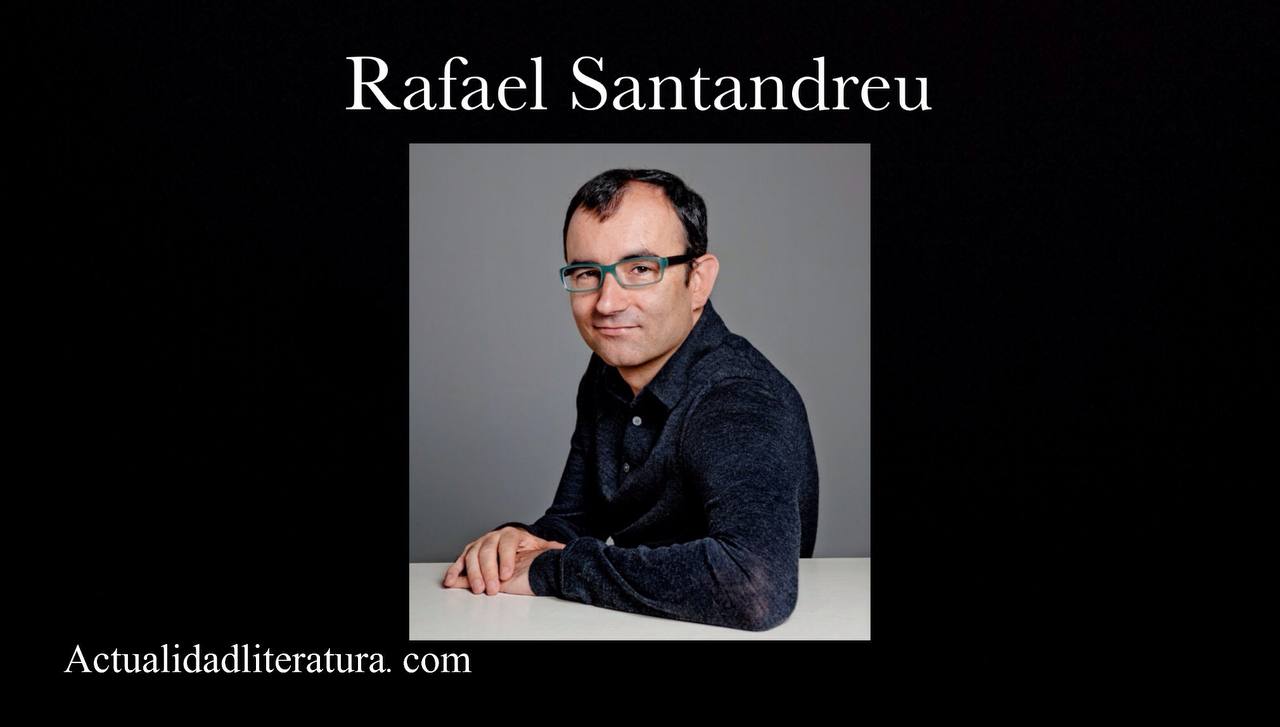
Phrase of Rafael Santandreu
When an Internet user asks Google for the query “Rafael Santandreu books”, most of the results point to The art of not embittering life (2013). Although the aforementioned title made Catalan known at an editorial level, the renowned psychologist has already successfully published seven more texts. All of them categorized within the self-help section.
Therefore, they are volumes with an extension of less than 300 pages and written with easy-to-understand terminology. Also, Santandreu's publications expose a solid scientific basis, which has earned him the praise of several internationally renowned psychology experts. Among them, Ramiro Calle, Alicia Escaño Hidalgo and Walter Riso.
The books of Rafael Santandreu (in the words of its author)
The following reviews contain impressions of Santandreu expressed in interviews granted to media such as La Vanguardia, know square o Minutes 20, among others.
The art of not embittering life (2013)
According to the Catalan psychologist, there are certain terms and crazy beliefs deeply rooted in the minds of most Spaniards. The first of these thoughts is the tendency of people to need someone to give and receive affection. So, if an individual cannot "keep another by her side", he is perceived as a being with a gray everyday life.
On the other hand, the author has repeatedly stated that the purpose of this title is to offer a method of change and personal improvement. That is, the basic premise of any self-help text. But what makes this book so special? In this regard, Santandreu's greatest asset is scientific support: more than two thousand academic studies and thousands of testimonies extrapolated from his consultation.
Prejudices (that every person must overcome) described in The art of not embittering life
- If a person is alone, he is someone pathetic and, probably, of an unbearable temperament;
- Sentimental infidelity is an impossible event to overcome, it is a trauma that eats away at the soul;
- Any adult unable to provide a home of their own is a failure whose livelihood depends on others;
- The amount of possessions (materials, opportunities, friends, academic titles…) is directly proportional to the success of a person.
school of happiness (2014)
The text includes the recommendations issued by those who —according to Santandreu— They are the ten most trained psychologists in the world. These premises are consistent with many of the concerns expressed by the patients of the garden psychologist's office. In this way, he detected a "bad daily vibe" in most of them: depression and anxiety.
En este sentido, Santandreu explains that "everyday bad vibes" is an increasingly frequent disease. Since from one in ten people affected by depression in the 1990s, the statistic reflects an increase to four in ten individuals today. Given this increase, the Spanish writer offers several explanations; between them:
- Emotional illnesses are due to changing generational values from those traditional to those more focused on consumption;
- The consequence of the aforementioned transmutation of values are two concepts: necessitis y terribilitis;
- La necessitis encompasses not only a materialistic pathology, but also includes psychological needs caused by stressful social tendencies, based on the desire to prove to be someone successful;
- La terribilitis is the tendency to take every negative news as if it were the end of the world.
Santandreu's recommendations to "learn happiness"
- Self-training through books on philosophy and surround yourself with people with “a well-furnished head”, calm and happy;
- willingness to change the way of seeing the world;
- Take precautions without fear;
- Nobody is ever too old to change.
The glasses of happiness (2015)
Rafael Santandreu defines happiness in this book as un state in which someone is able to give generously to their positive emotions. In parallel, that individual is aware of his negative feelings, but, despite fully accepting them, experiences them briefly. Consequently, the person has great self-esteem and does not hold grudges towards the world.
Thus, it is possible to appreciate simple things - a glass of wine, a walk or the color of the sky, for example - and see an opportunity in each moment. All this part of a process of emotional strengthening whose foundation is to appreciate what you have and not complain about things that you don't have or don't work. Additionally, the Catalan psychologist proposes a new term: the enough.
What is the enough?
Basically, it is about appreciating, detailing and being content with those material and immaterial issues that are possessed. Although, it is necessary to differentiate this concept from pessimistic conformism, characteristic of people lacking goals and dreams. So, this balance makes it possible to enjoy the path of achieving a goal, without fear or absurd pressure.
Biography of Rafael Santandreu

Rafael Santandreu
Rafael Santandreu Lorite was born in Horta, Barcelona, on December 8, 1969. In Barcelona, he studied Psychology at the Public University of Barcelona before moving on to the University of Reading, in England. Subsequently, the young Iberian completed his training at the Postgraduate School of Brief Strategic Psychotherapy in Arezzo, Italy, directed by the famous psychologist Giorgio Nardone.
Santandreu worked in Tuscan territory together with Nardone at the Centro di Asistencia Strategica. Then CWith the entrance of the new millennium he returned to his homeland to teach at the Ramón Llull University. In parallel, the garden psychologist began to translate psychology texts oriented towards professional development and labor relations.
Mente Sana and beginnings in writing
Santandreu's first editorial releases coincided with his tenure as editor-in-chief of the magazine Mente Sana, together with the Argentine doctor and writer Jorge Bucay. In this way, it appeared The art of not embittering life (2013), the acclaimed debut feature by the Spanish psychologist. The following year, she kept the bar high with another well-received book, school of happiness.
Other books by Rafael Santandreu
- The keys to psychological change and personal transformation (2014);
- Be happy in Alaska. Strong minds against all odds (2017);
- Without fear (2021)
Some phrases of Rafael Santandreu
“The owner of your mind is you. If you furnish yourself very well so as never to “terrify”, you will be able to see the mentality of others from the sidelines and it will not affect you”.
"The force of enjoyment is greater than the force of obligation."
"Comfort does not bring happiness and people think it does."


